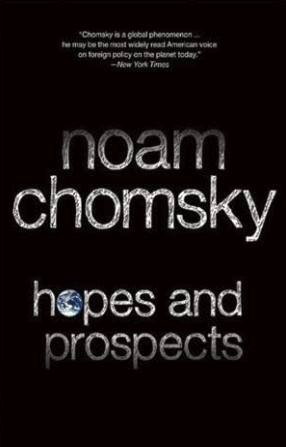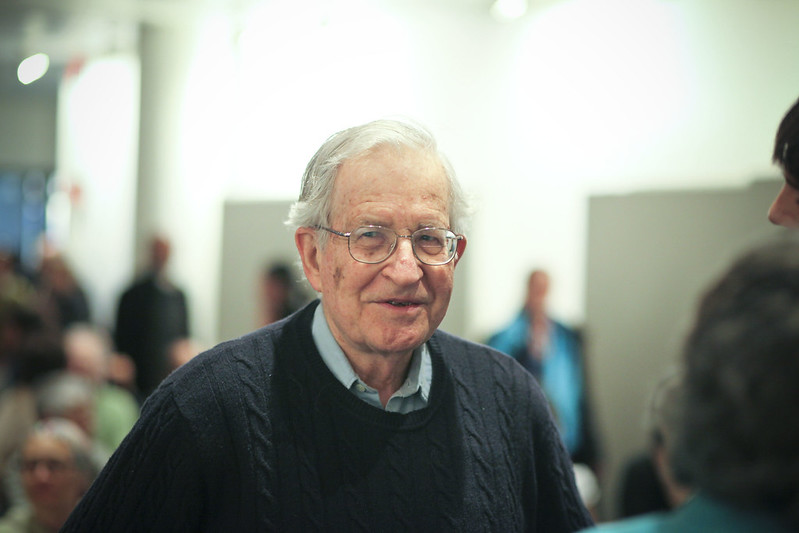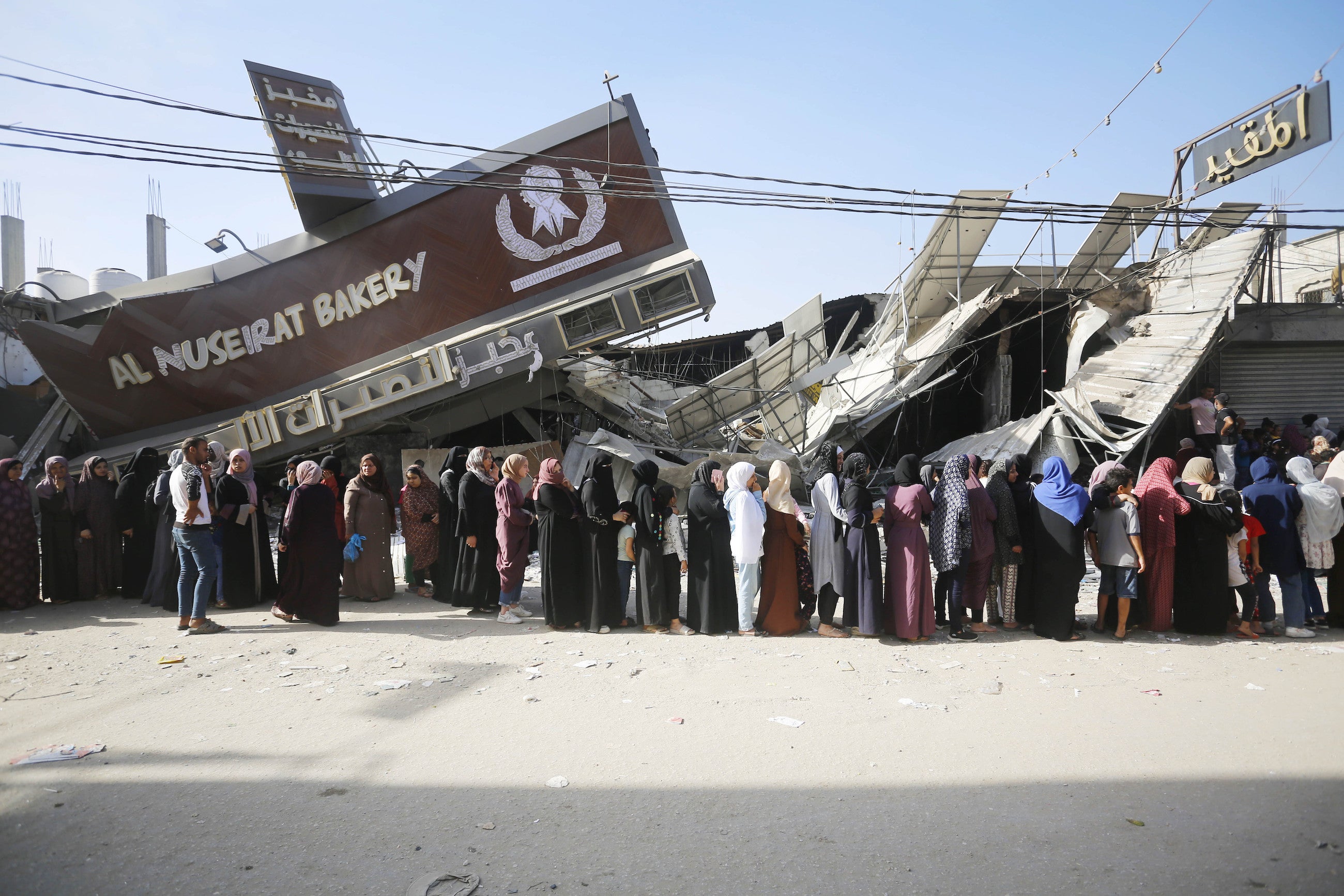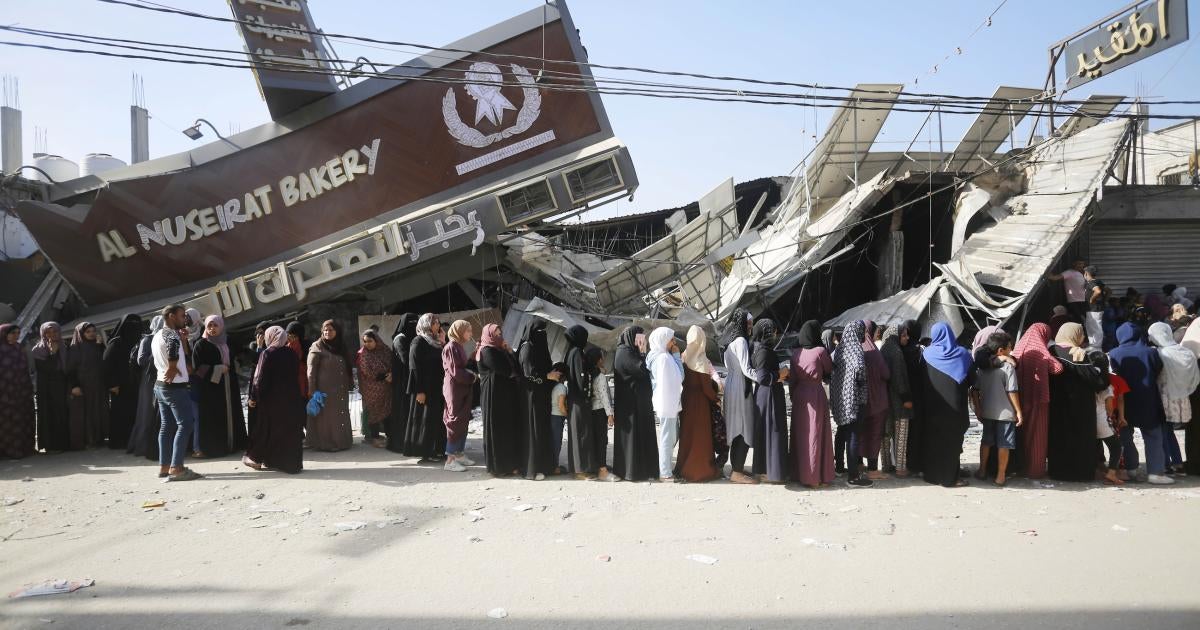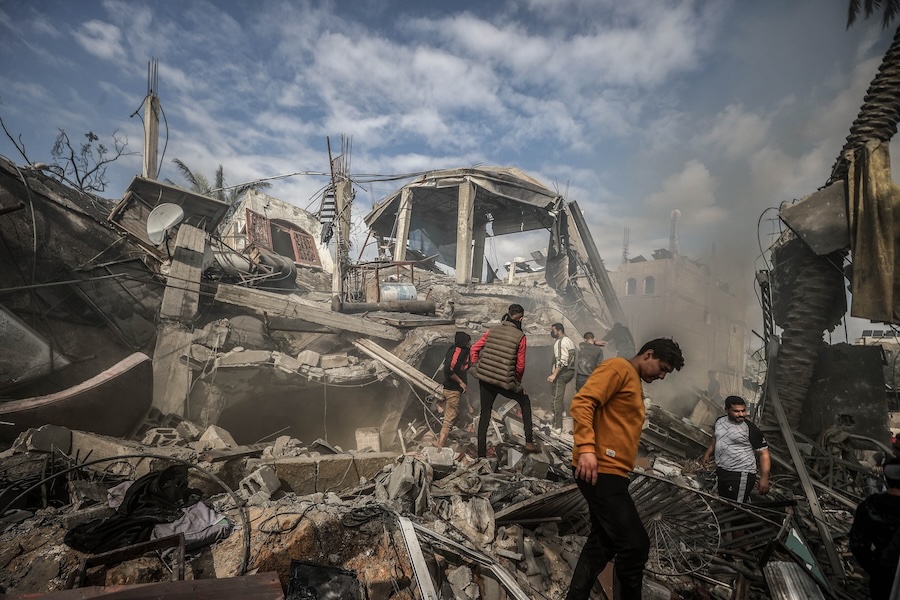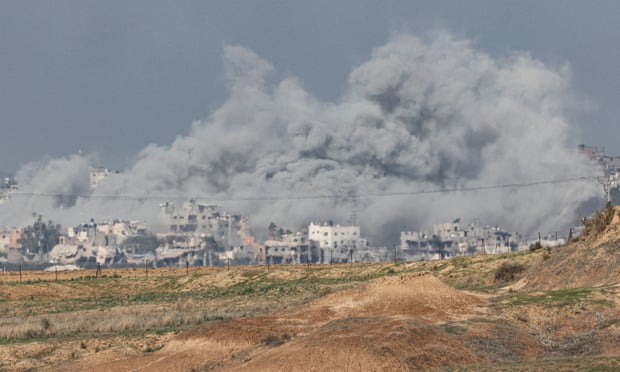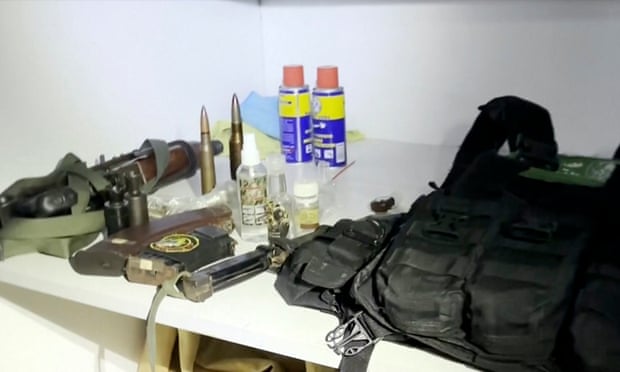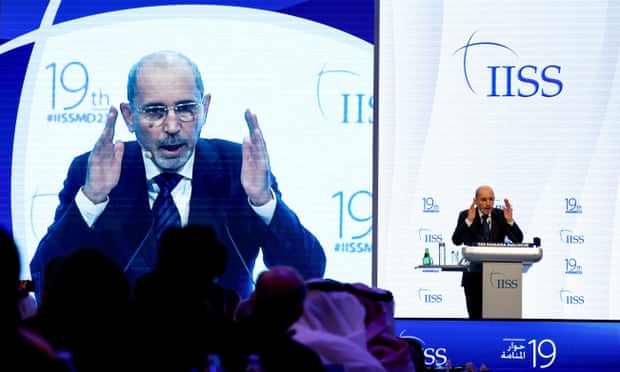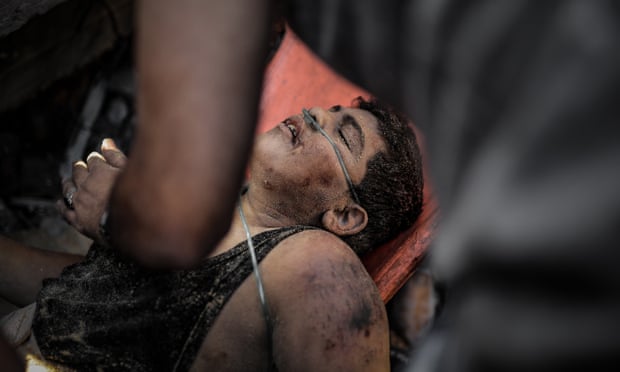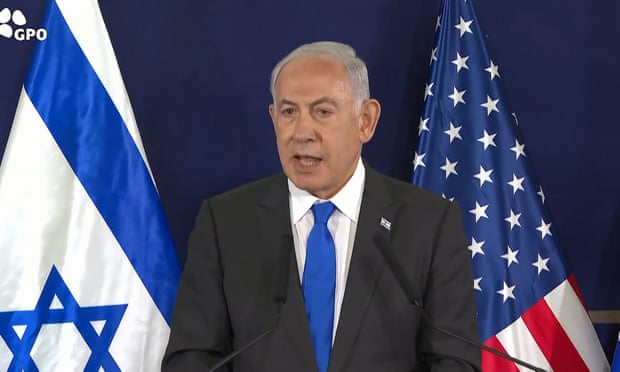The New York Review ($)
Over fifty-six years, Israel has transformed Gaza from a functional economy to a dysfunctional one, from a productive society to an impoverished one.
(Text continues underneath the photo.)
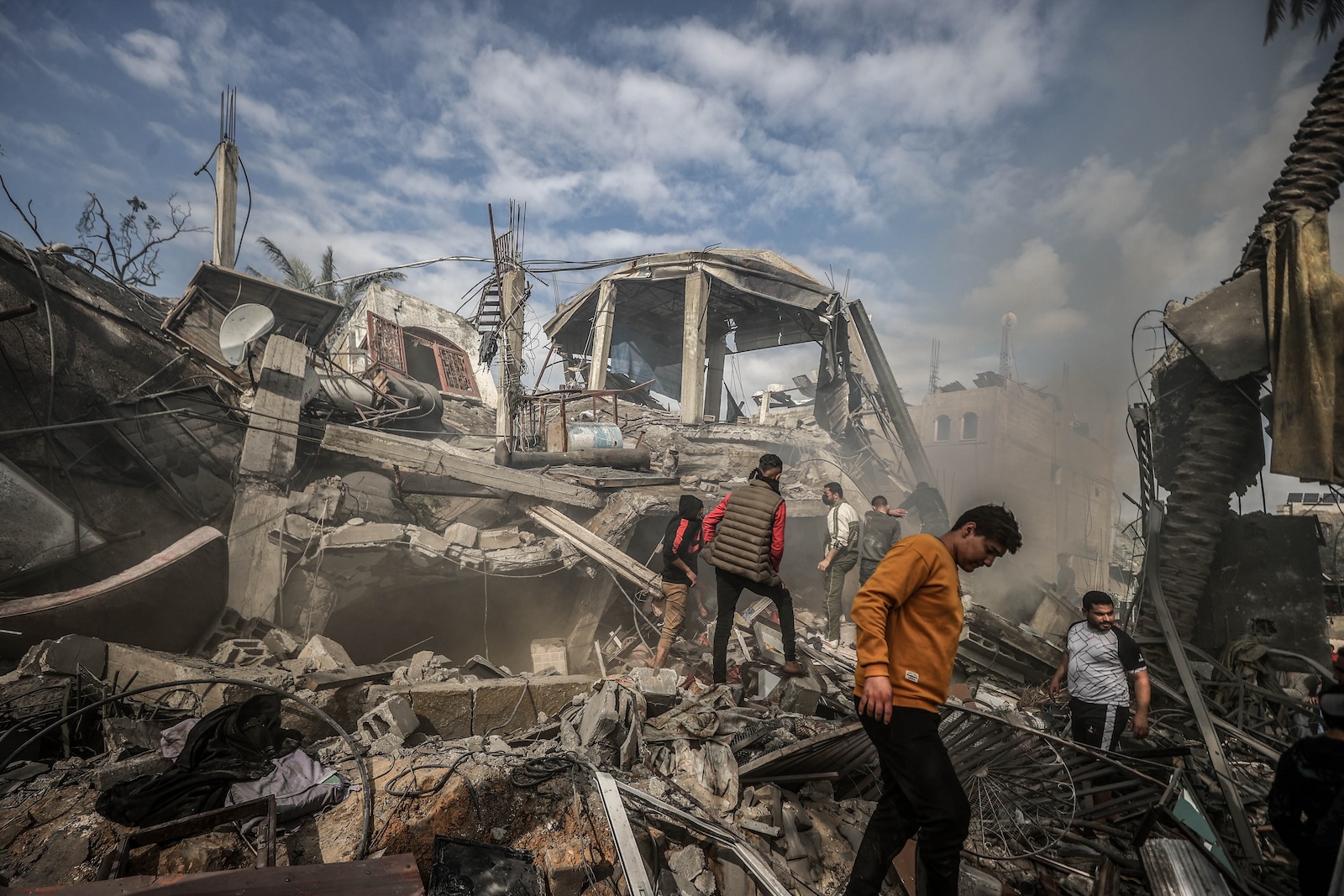
Palestinians in Rafah, a city in the southern Gaza Strip, conducting search and rescue operations in the rubble of buildings destroyed by Israeli airstrikes, December 14, 2023
Gaza is being devastated as we watch. A stated goal of Israel’s assault, which has so far killed more than 19,400 people, is to “destroy Hamas” in retaliation for its attack that killed 1,200 in Israel’s south in October. But a number of critics, such as the Palestinian ambassador to the UK, Husam Zomlot, have argued persuasively that Israel’s goal is less to vanquish Hamas—impossible in any case—than to finally expel Palestinians from Gaza without international censure or sanction. (...)
The current desecration of Gaza is the latest stage in a process that has taken increasingly violent forms over time.
In the fifty-six years since it occupied the Strip in 1967, Israel has transformed Gaza from a territory politically and economically integrated with Israel and the West Bank into an isolated enclave, from a functional economy to a dysfunctional one, from a productive society to an impoverished one. It has likewise removed Gaza’s residents from the sphere of politics, transforming them from a people with a nationalist claim to a population whose majority requires some form of humanitarian aid to sustain themselves. (...)
For decades the pressure on Palestinians in Gaza has been immense and unrelenting. The damage it has done—high levels of unemployment and poverty, widespread infrastructural destruction, and environmental degradation, including dangerous contamination of water and soil, among other factors—has become a permanent condition. (...)
Israel has never known what to do with this tiny strip of land. From the beginning of the occupation, the country’s leaders recognized that Gaza would have to be pacified to preclude the creation of a Palestinian state—their primary objective—and minimize Palestinian resistance were they to annex the West Bank. During the first two decades of the occupation, from the Six-Day War of 1967 to the start of the first intifada, their preferred tactic was controlling Gaza’s economy. (...)
The first intifada made it clear that this strategy of pacification had failed. Improved living standards could no longer compensate for the absence of freedom. (...)
That year [2007] Israel imposed a blockade that severely limited both trade with Gaza and the entry of specific food products into the Strip. But the blockade—now in its seventeenth year—is only a more extreme form of measures that were already in place. (...)
Early in 1991—before Hamas started launching rockets and orchestrating suicide bombings—Israel began restricting and periodically blocking the movement of workers to and from Gaza, as well as the trade upon which its small economy disproportionately depended. (...) In January 1991 Israel canceled the general exit permit that made it possible for Palestinians to move freely through Israel, the West Bank, and Gaza. (...)
The cancellation of the general exit permit marked the start of Israel’s closure policy. (...) As B’Tselem, another rights group focused on the West Bank and Gaza, has put it, “Isolating Gaza from the rest of the world, including separating it from the West Bank, is part of a longstanding Israeli policy.”
This policy of separation and containment became more explicit in the aftermath of the Oslo Accords. In 1994 Israel built a fence around Gaza, the first of several enclosures. (...)
In 2005 Israel “disengaged” from the Strip, removing all of its settlements and military forces. Israeli officials have since argued that this formally ended the country’s occupation of Gaza. According to international law, however, Israel remains an occupier, as it maintains “effective control” over Gaza’s borders (except for Rafah, which Egypt controls), sea access, airspace, and population registry. (...)
Another crucial effect of Israeli policy—more noticeable after Hamas came to power in 2007. (...) Israel in effect recast its relationship with Gaza from occupation to warfare, as evidenced by the numerous deadly assaults it launched on the territory over the past seventeen years—among them Operation Summer Rains (2006), Operation Hot Winter (2008), Operation Cast Lead (2008-09), Operation Pillar of Defense (2012), Operation Protective Edge (2014), Operation Guardian of the Walls (2021), Operation Breaking Dawn (2022), and Operation Shield and Arrow (2023). (...)
Under this new approach, Israel dispensed altogether with the notion that Gaza could have a market economy. “As part of their overall embargo plan against Gaza,” US officials wrote from Tel Aviv in November 2008, “Israeli officials have confirmed … on multiple occasions that they intend to keep the Gazan economy on the brink of collapse without quite pushing it over the edge.” More specifically, they aimed to keep it “functioning at the lowest level possible consistent with avoiding a humanitarian crisis.” (...)
Since 2010, Israel has periodically eased restrictions, but the blockade has nonetheless almost entirely destroyed Gaza’s economy. On the eve of the current conflict, unemployment was at 46.4 percent. (In 2000, before the blockade, it was at 18.9 percent.) Approximately 65 percent of the population was food-insecure, meaning they could not safely access enough nutritious food to meet their dietary needs, while 80 percent required some form of international assistance to feed their families. (...)
Gaza could only experience relief, not progress. (...) “The West Bank and Gaza are now almost completely delinked,” a World Bank report stated in 2008, “with Gaza starkly transforming from a potential trade route to a walled hub of humanitarian donations.” (...)
Israel has, in other words, created a humanitarian problem to manage a political problem. (...)
For the past ten weeks, with the exception of a one-week “humanitarian pause,” Gaza has been under a total siege; Israel has virtually halted the entry of fuel and restricted the entry of food, among other critical necessities. (...)
Complete article ($)
Tags: #israel #palestine #palestinians #gaza #human_rights #occupied_territories #international_law #war #humanitarian_aid #unemployment #west_bank
/s3/static.nrc.nl/taxonomy/3bc0bd3-Bouazza%252C%2520Hassnae_05%252009%25202023_07%2520700%2520%2528artikel%2529.png)
:format(jpeg):fill(f8f8f8,true)/s3/static.nrc.nl/taxonomy/f2837c8-Bouazza%252C%2520Hassnae_05%252009%25202023_07%25201280%2520%2528homepage%2529.png)
